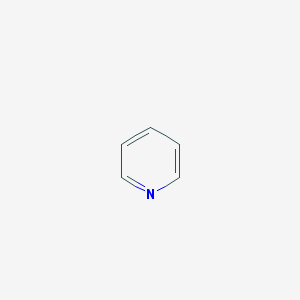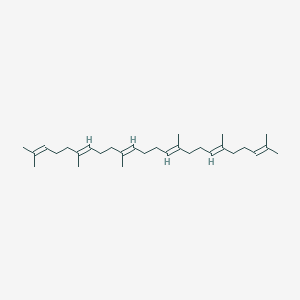-
Categories
-
Pharmaceutical Intermediates
-
Active Pharmaceutical Ingredients
-
Food Additives
- Industrial Coatings
- Agrochemicals
- Dyes and Pigments
- Surfactant
- Flavors and Fragrances
- Chemical Reagents
- Catalyst and Auxiliary
- Natural Products
- Inorganic Chemistry
-
Organic Chemistry
-
Biochemical Engineering
- Analytical Chemistry
- Cosmetic Ingredient
-
Pharmaceutical Intermediates
Promotion
ECHEMI Mall
Wholesale
Weekly Price
Exhibition
News
-
Trade Service
Blueprint Medicines today presented the positive results of two clinical proof-of-concept trials in patients with refractic non-small cell lung cancer (NSCLC) who carry EGFR mutations using the specific RET inhibitor BLU-667 in association with AstraZeneca's Tagrisso at the World Lung Cancer Congress of the International Lung Cancer Research Association. The results were also published in Cancer Discovery. In both trials, the combination therapy overcomes the incurable effects of RET fusion previously produced in standard therapies and significantly reduces tumor cells.
ret fusion and mutation are key causes of a variety of cancers, including NSCLC and thyroid myelin-like cancer (MTC). The number of people with RET fusion in NSCLC patients was about 1-2%, while in MTC patients, up to 60% of patients with RET gene mutations were carried. In addition, colorectal cancer, breast cancer, pancreatic cancer and other cancers also have a lower probability of RET fusion. RET fusion may also occur in patients with refrative NSCLC with EGFR gene mutations. No approved therapies are currently available to selectively target RETs for cancer, but several approved polyprotein kinase inhibitors (MKIs) have evaluated RETs in clinical trials. However, although these MKIs inhibit the activity of RET, they may also have toxic side effects due to off-target effects and have limited inhibition of RET activity. As a result, patients urgently need a precise treatment that targets RET mutations and drug-resistant mutations to help them deliver consistently safe outcomes.
BLU-667 is a daily oral strong RET-specific inhibitor developed by Blueprint Medicines, which specifically targets cancer-causing RET fusion and mutations. In preclinical studies, BLU-667 showed a continuous sub-nanomolar level response to a variety of common RET fusion, mutations, and drug-resistant mutations. Compared to several approved MKIs, the BLU-667 has significantly improved the selectivity of RETs, and the VEGFR-2 has increased more than 80 times. By inhibiting levels 1 and 2 mutations, BLU-667 has the potential to overcome and prevent clinically resistant mutations. This will enable blue-667 to achieve continuous clinical positive response and good safety for multiple RET mutations.
addition, the drug is currently being evaluated in a global Phase 1 clinical trial for patients with RET variants of NSCLC, MTC, and other solid tumors. Blueprint Medicines announced the positive results of ARROW at the American Association for Cancer Research's (AACR) 2018 annual meeting in April. The trial included 19 NSCLC patients, 29 MTC patients and 5 other solid tumor patients. The 53 patients were treated with an increasing dose of BLU-667, 27 of whom had previously been treated with MKIs and 18 with immunotherapy. The results showed that 84% of patients with RET-variant solid tumors with lesions that could be detected had smaller tumors and good drug resistance to BLU-667.
clinical data from the combined therapy released today showed that two patients with severe NSCLC with EGFR gene mutations in the trial received partial remission (PR) after eight weeks of combined therapy. Both patients who participated in the trial received pre-treatment and were difficult to treat for standard treatment due to the RET fusion gene. According to the assessment of solid tumor efficacy evaluation standard (RECIST) version 1.1, the tumors of the two patients were reduced by 78% each, and the combination therapy resistance was good.
The combination of BLU-667 and osimertinib, two highly selective drugs, is likely to be a new generation of therapies for the incurable NSCLC that carries EGFR gene mutations," said Dr. Lecia V. Sequist, a medical oncologist at Massachusetts General Hospital Cancer Center, an associate professor at Harvard Medical School and senior author of the trial report. In this trial, both patients showed significant positive therapeutic response after 8 weeks of combined therapy, which means that the combination therapy of BLU-667 and osimertinib has great potential and will support us in expanding the range of patients' options in future trials. "
we congratulate this combination therapy on the positive results of this clinical trial and look forward to the early improvement of this breakthrough therapy to meet with patients. (Bio Valley)







